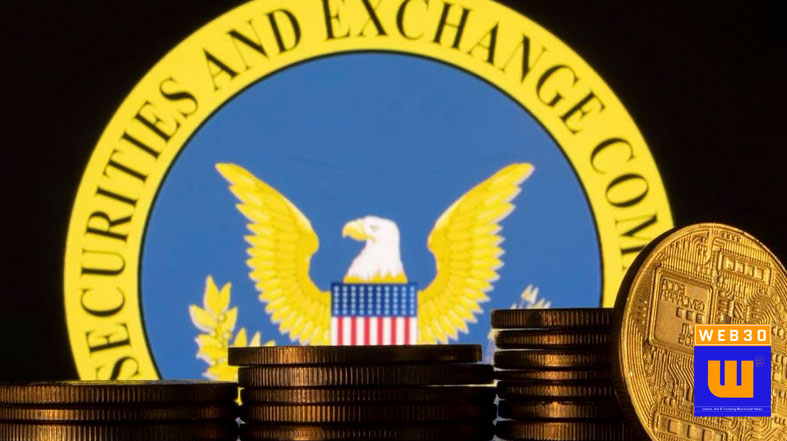As the US Securities and Exchange Commission (SEC) tightens its grip on the cryptocurrency sector, concerns and calls for clearer regulations are intensifying within the industry.
This increased regulatory scrutiny is not just reshaping compliance requirements but also sparking intense debates about the future of digital currencies in the US.
Kadan Stadelmann, CTO of Komodo, a non-custodial wallet and atomic swap DEX platform, has warned that the current regulatory approach could potentially stifle innovation.
This tension is highlighted by the SEC’s recent actions, such as its consideration of classifying Ethereum as a security and issuing a Wells Notice to Robinhood. These actions challenge the operations of these entities and raise broader questions for the industry.
According to a report by Cornerstone Research, the SEC’s enforcement actions surged to a 10-year high in 2023, with a significant focus on digital assets. The commission imposed $281 million in fines through various settlements last year, targeting crypto firms with unprecedented rigor.
In light of these developments, Stadelmann advocates for a balanced approach to regulation. “Regulation by enforcement is wrong,” he stated, urging for frameworks that foster collaboration rather than confrontation.
“The SEC should work together with the industry to set clear standards,” he added.
The SEC’s recent maneuvers indicate a clear intention to apply traditional financial regulatory frameworks to the digital currency sphere. This approach has elicited mixed responses from the industry, ranging from cautious endorsement to outright criticism.
The courtroom battle between Ripple and the SEC exemplifies this challenge. Ripple’s recent pushback against the SEC’s use of what it deems late and undisclosed expert testimonies highlights the broader issue of adapting old-world financial regulations to the crypto landscape.
Stadelmann voiced concerns regarding the implications of the SEC’s forceful enforcement approach, such as the $2 billion fine against Ripple. He argues that such stringent measures deter new entrants into the market.
“The combination of regulatory ambiguity and strict enforcement is starting to drive blockchain innovation outside of the U.S.,” Stadelmann said.
“Although the SEC pitches itself as an agency that protects investors, it also prevents them from accessing legitimate opportunities. At the same time, it focuses too much time on punishing good actors and not enough time on pursuing actions against known bad actors.”
The SEC’s regulatory enforcement has not been limited to isolated cases. It broadly targets key services across the industry, as seen in the crackdowns on platforms like Coinbase and Kraken, particularly regarding their staking services.
According to the Komodo CTO, this approach could hinder the mass adoption of crypto by portraying relatively safe staking services as high-risk activities.
“Staking rewards are generated on blockchains, so it’s a transparent process that offers a safer alternative to other high-risk investments,” he explained, emphasizing the need for regulatory nuance that recognizes the unique aspects of different crypto services.
Despite the challenges posed by the current regulatory environment, Stadelmann acknowledged the potential benefits of effective regulation, such as enhanced investor protection and market integrity.
He believes that well-crafted regulations could protect investors from fraud and enhance market integrity by promoting transparency and detecting abuses like insider trading and price manipulation.
Navigating this landscape, Stadelmann advised crypto companies to engage proactively with regulators and plan for regulatory uncertainty. He emphasized the importance of dialogue and collaboration with regulatory bodies to foster a framework that supports innovation.
Summary Review: The SEC’s aggressive regulatory stance is creating significant challenges for the US cryptocurrency industry. While there is a need for clear and effective regulation to protect investors and ensure market integrity, the current approach may stifle innovation and drive blockchain developments overseas. A more balanced regulatory framework that fosters collaboration and recognizes the unique aspects of the crypto market could support the growth and maturation of the industry. Engaging proactively with regulators and advocating for thoughtful regulation is crucial for the future of cryptocurrency innovation in the United States.
Disclaimer: Remember that nothing in this article and everything under the responsibility of Web30 News should be interpreted as financial advice. The information provided is for entertainment and educational purposes only. Investing in cryptocurrency involves inherent risks and potential investors should be aware that capital is at risk and returns are never guaranteed. It is imperative that you conduct thorough research and consult with a qualified financial advisor before making any investment decision.





